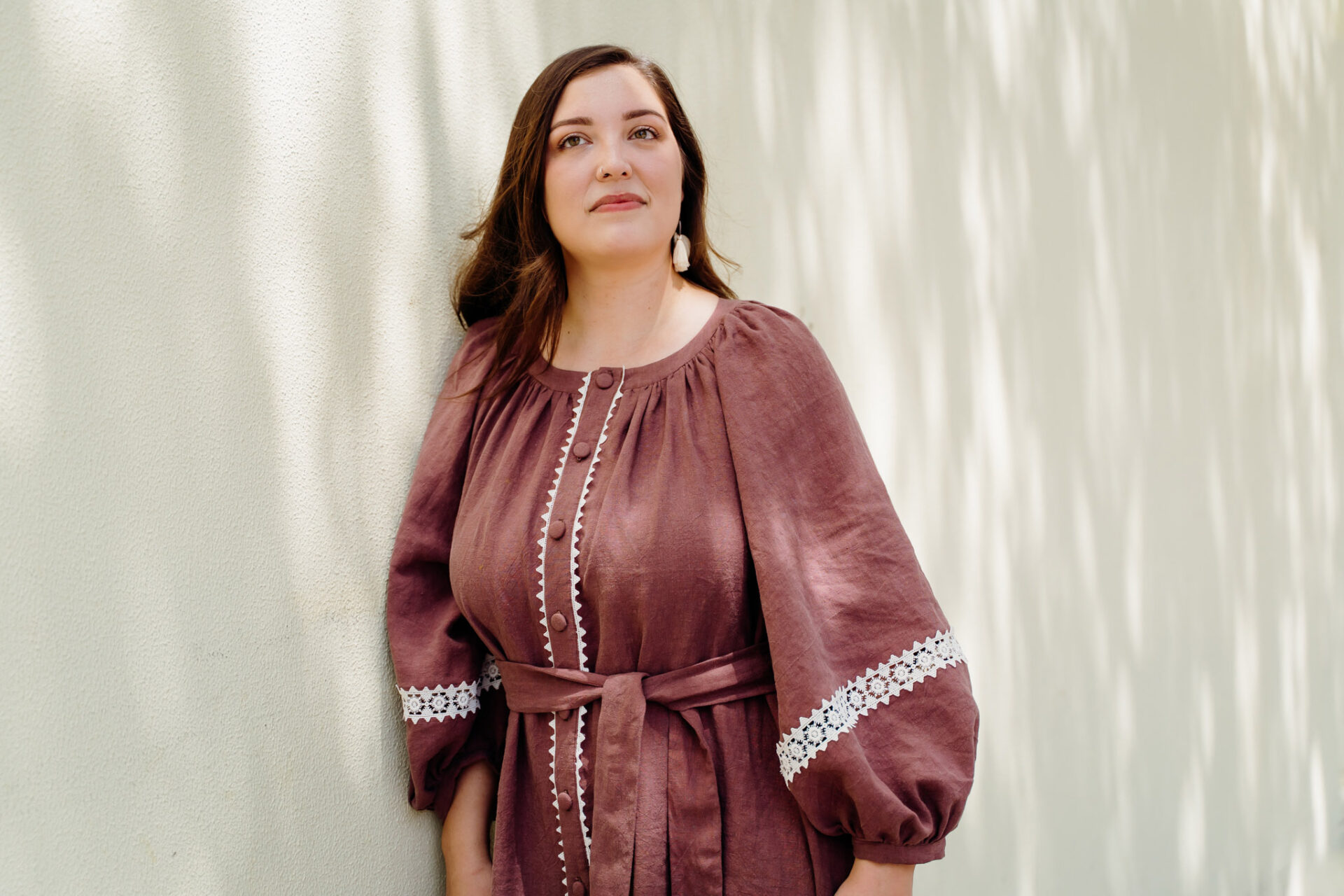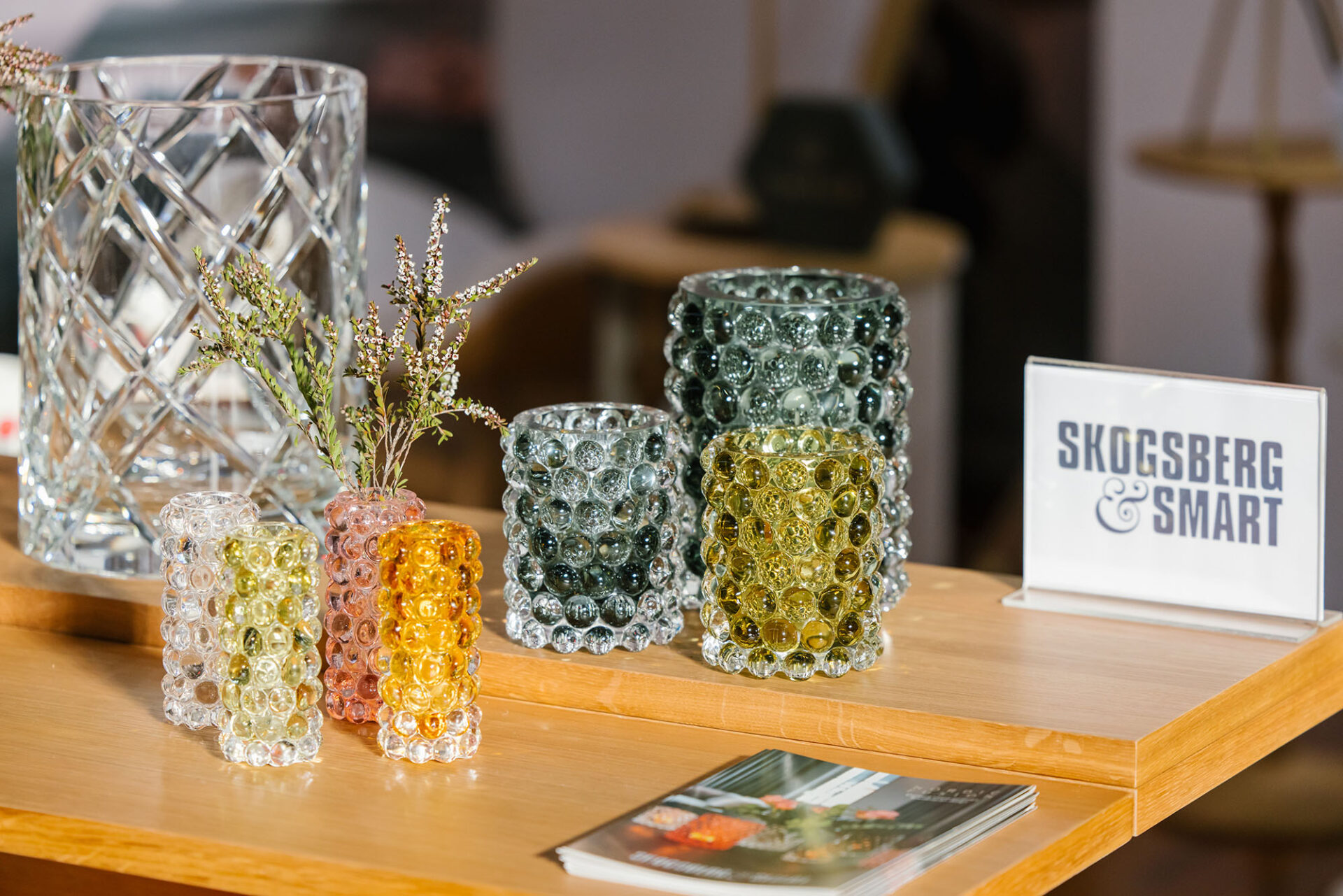Wine Talk: Why is Sustainability in Winemaking So Important?

- Words by Peppermint
words EMILY LUSH photos below SUPPLIED BY YALUMBA
Whether we care to admit it, it’s often beautiful design – or perhaps an evocative description on the back of the label – that is most likely to guide our buying decisions at the bottle shop. But as the true environmental impact of winemaking is further quantified, there’s growing reason to take a closer look at the fine print and consider your wine’s environmental credentials.
In this series – created in partnership with our good friends at Yalumba to celebrate the launch of their GEN collection of five ACO-certified, sustainably made wines – we’re doing a deep dive into some of the industry’s most pressing issues. In part one, we investigated the real meaning of ‘organic wine’. In the second of the series, we pose the question: Why is sustainability in winemaking so important?
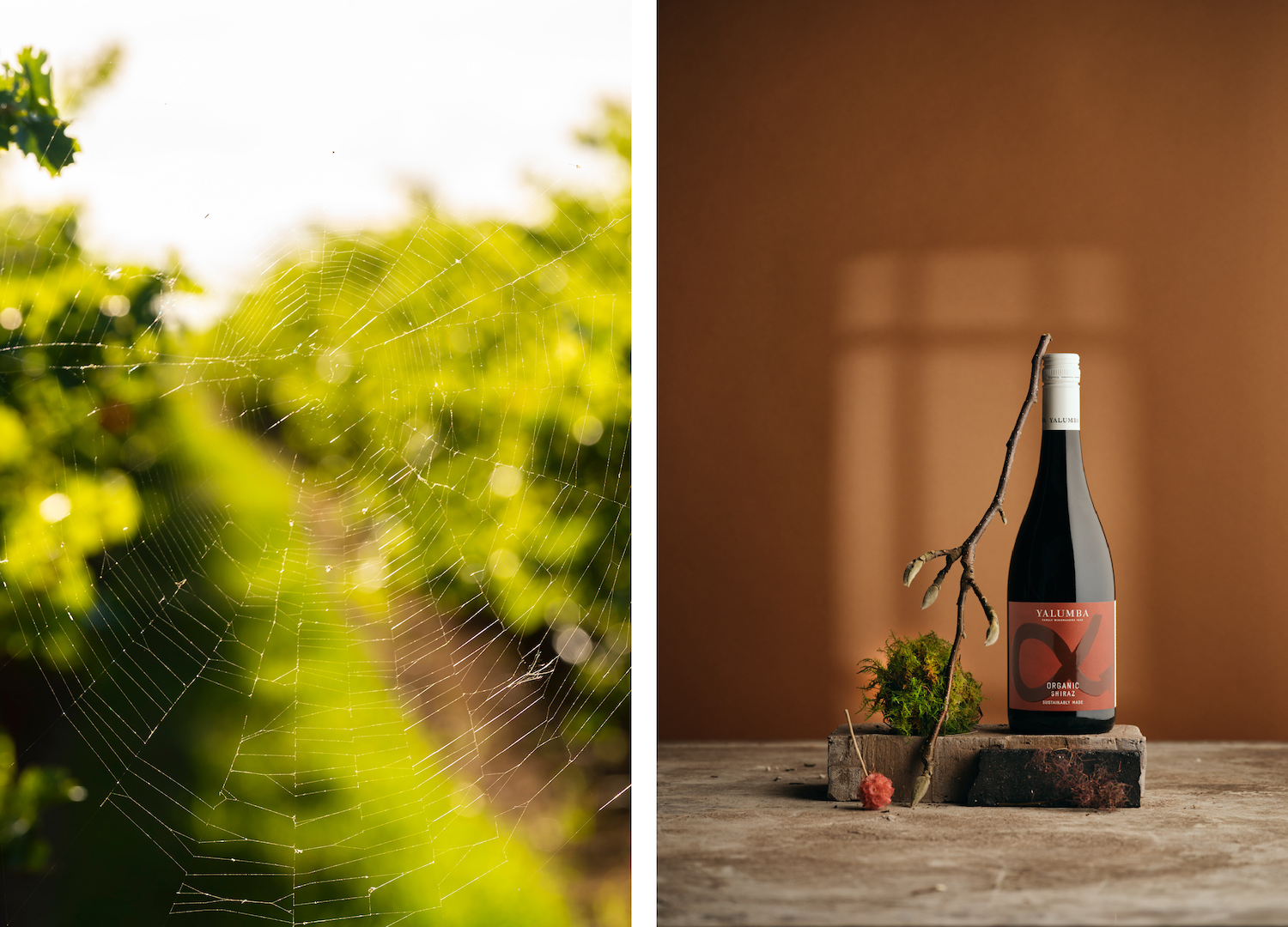
A good bottle of wine might be quick to savour, but its impact on our environment can be lingering. Winemaking is a complex process with many moving parts. Yet a significant portion of wine’s footprint comes down to two familiar factors: water consumption and carbon emissions.
Wine is the ‘canary in the coal mine of agriculture’.
According to WaterFootprint.org, cultivating one kilo of grapes for winemaking requires around 610 litres of water. Put another way, approximately 109 litres of water goes into every glass of vino. It’s a drop in the ocean compared to some of our most water-intensive crops such as cotton (priced at 10,000 litres of water per kilogram) – but it’s still significant. (And it’s 300% more than a schooner of beer made from barley, which has an average footprint of 150 litres of water.) Research puts the average carbon footprint of a bottle of wine at 1.28 kilograms of CO2.
READ MORE – Wine Talk: Are You Confused About What Organic Wine Really Means?
Concerningly, emissions released during the fermentation process are believed to be “the most concentrated of all industrial CO2 emissions”, according to research by Decanter. Packaging plays a huge role, with 39% of the wine industry’s total CO2 emissions contributed by glass bottles alone. Factor in the added cost of shipping those heavy bottles and you have a very compelling argument for drinking wines produced close to home.
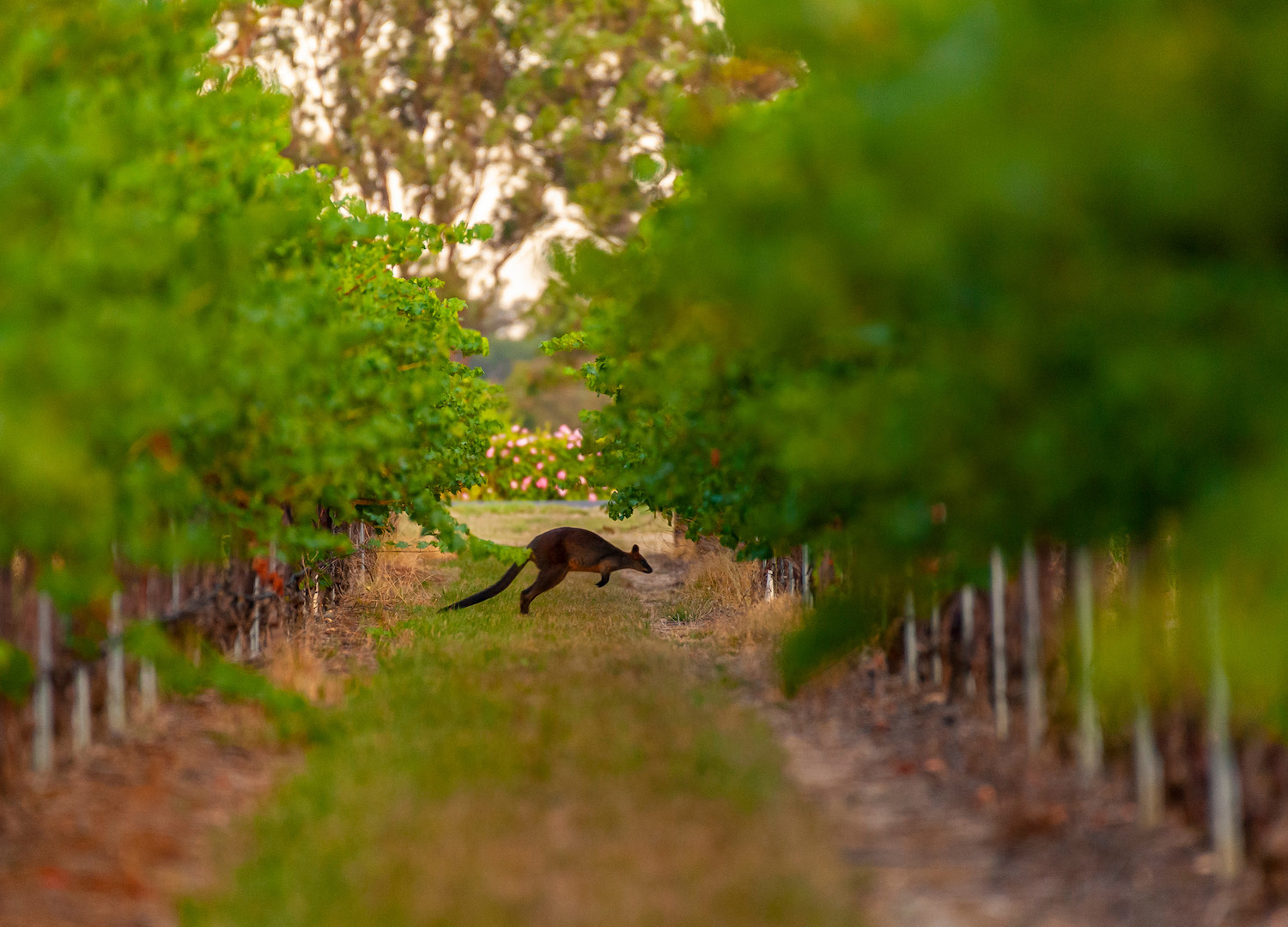
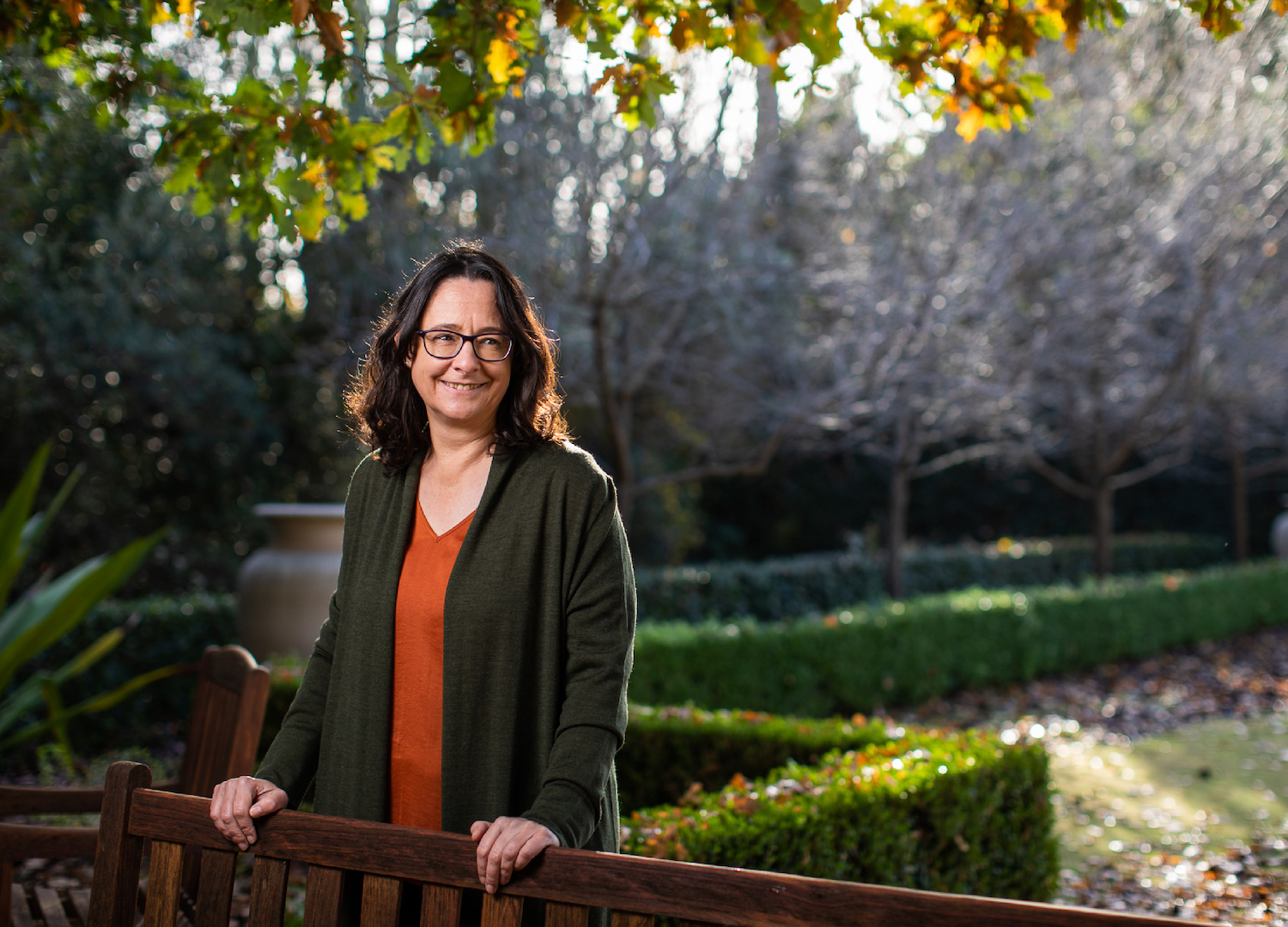
above LOUISA ROSE, HEAD WINEMAKER AT YALUMBA
While the wine industry is a contributor to emissions, when it comes to the impacts of a changing climate, there’s an argument to be made that the wine industry bears more than its fair share of the brunt. Vines are so sensitive to their environment, they are often the first to suffer from even the slightest changes in average temperature, variations in sunlight hours or shifts in rainfall patterns. As viticulturist Richard Smart put it, wine is the “canary in the coal mine of agriculture”.
It’s little wonder, then, that more and more Australian winemakers like Yalumba are looking at climate change adaptation with an increased sense of urgency. “Without sustainable viticulture, the future of winemaking is very bleak,” says Louisa Rose, Head Winemaker at Yalumba. The family-run winery outside Angaston in the Barossa has been pioneering climate mitigation measures since the 1990s. And experience has taught them that if sustainability doesn’t soon become the norm among vintners, “the industry will not have a place in the changing world landscape”.
Without sustainable viticulture, the future of winemaking is very bleak… the industry will not have a place in the changing world landscape.
“Sustainable winemaking is what we do at Yalumba and what we have done for the past 173 years,” Louisa explains. “It is about continual improvement and the desire to protect and respect the fundamental elements essential to making quality wine for generations to come.” From installing one of the largest solar power systems of any Australian winery and implementing an award-winning native saltbush planting and mulching program (which achieved a 25% reduction in water use), to pledging a commitment to transition to 100% recyclable or compostable packaging by 2025 and now releasing the GEN collection, a drinkable manifestation of the winery’s commitment to betterment, Yalumba’s approach is all-encompassing.
READ MORE – Drink Responsibly This Festive Season with These 10 Sustainable Wine Brands
In fact, the company has received more than 40 accolades for its sustainable viticulture programs, including the International Award of Excellence for Sustainable Wine Growing in 2013.
Yalumba’s mission is to foster “a cultivated but balanced vineyard ecosystem that makes efficient use of the natural features of the land, stems environmental decline, regenerates resources, and fosters biodiversity,” Louisa adds. Healthy vines are the heart of the operation, but the company’s commitment to sustainability goes well beyond the cellar door. They’ve implemented their Next 5 sustainability program with five supporting pillars – Resilient Terroir, Viable Planet, Prosperous Community, Thriving Workforce and Responsible Governance – that “all speak to ensuring that we take others on this journey”.
It is about continual improvement and the desire to protect and respect the fundamental elements essential to making quality wine for generations to come.
The importance of moving towards sustainable winemaking is now well understood, yet there is no one-size-fits-all approach. Every vineyard, Louisa explains, is unique. “It comes down to what needs to be done at that location,” she says. “Understanding and mapping vineyards is a good place to start. This will help to drive efficiencies in the location and future practices.”
Surveying the landscape is also an important first step for wine consumers who are interested in savouring more sustainable vino. There are several different marks and accreditations to look out for – including the Sustainable Winegrowing Australia seal of approval, which Yalumba is committed to achieving certification across all of their wines.
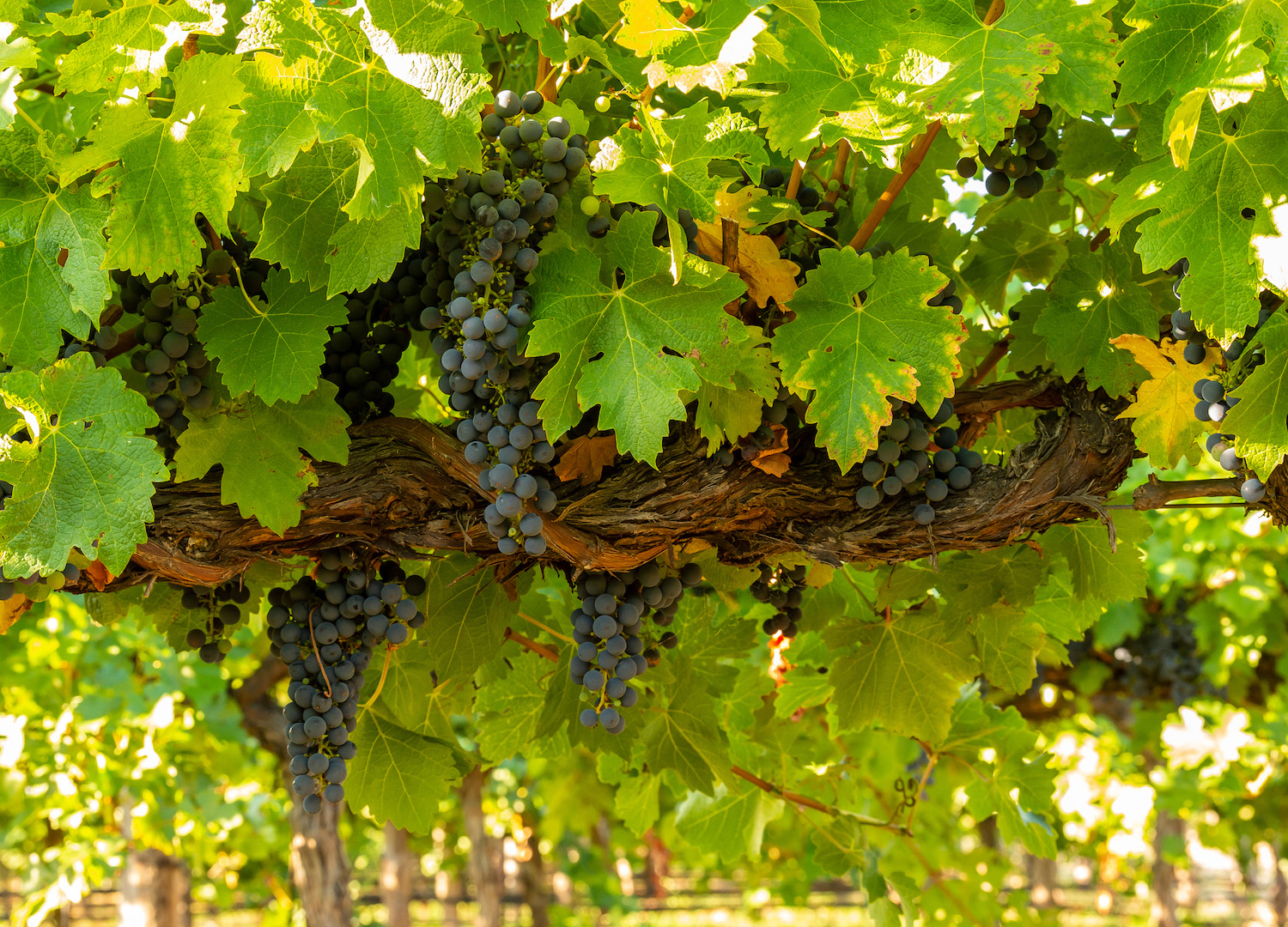
THIS ARTICLE WAS PRODUCED IN PARTNERSHIP WITH OUR FRIENDS AT YALUMBA AND THEIR NEW COLLECTION, YALUMBA GEN! COMMITTED TO BETTERMENT WITH A FIERCE DETERMINATION FOR THE FUTURE, THE FAMILY-OWNED WINERY BOASTS MORE THAN 173 YEARS OF SUSTAINABLE PRACTICE AND IS COMMITTED TO ALLOWING NATURE TO WORK ITS MAGIC WITH MINIMAL INTERVENTION. SHOP THE COLLECTION HERE.
JOIN OUR MAILING LIST
Brighten up your inbox with our not-too-frequent emails featuring Peppermint-related news, events, competitions and more!
explore
More articles
Look, I don’t want to make anyone panic but IT’S DECEMBER!!! If you’re planning to give homemade gifts, you’re going to have to act fast. …
Hang out with us on Instagram
🌻 The Paddington 🌻
This is a much-loved staple, created for Issue 50 in 2021. We love seeing the #PeppermintPaddingtonTop continually popping up in our feeds!
How stunning is our model Elon MelaninGoddessEfon – she told us it was one of the first times she had been asked to come to a shoot with her natural hair. 🌻
We worked with South African patternmaker Sarah Steenkamp of @FrenchNavyNow_ to create this wardrobe essential – the perfect puff-sleeve blouse. Raglan sleeves make it the ultimate beginner sew, plus the gorgeous back buttons let you add your own personal twist.
Pattern via the link in bio! 🪡
Photos: @KelleySheenan
Fabric: @Spoonflower
Model: MelaninGoddessEfon

“In the 1940’s, Norwegians made and wore red pointed hats with a tassel as a form of visual protest against Nazi occupation of their country. Within two years, the Nazis made these protest hats illegal and punishable by law to wear, make, or distribute. As purveyors of traditional craft, we felt it appropriate to revisit this design.”
Crafters have often been at the heart of many protest movements, often serving as a powerful means of political expression. @NeedleAndSkein, a yarn store in Minnesota, are helping to mobilise the craftivists of the world with a ‘Melt The Ice’ knitting pattern created by @Yarn_Cult (with a crochet pattern too), as a way of peaceful protest.
The proceeds from the $5 pattern will go to local immigrant aid organisations – or you can donate without buying the pattern.
Raise those needles, folks – art and craft can change the world. 🧶
Link in bio for the pattern.
Images: @Gather_Fiber @NeedleAndSkein @a2ina2 @KyraGiggles Sandi.204 @WhatTracyMakes AllieKnitsAway Auntabwi2
#MeltTheIce #Craftivism #Knitting #CraftForChange

TWO WEEKS TO GO! 🤩
"The most important shift is moving from volume-led buying to value-led curation – choosing fewer, better products with strong ethics, considered production and meaningful stories. Retailers have real influence here: what you buy signals what you stand for. At Life Instyle, this means using the event to discover and invest in small-scale, planet-considerate brands that align with your values and your customer’s conscience. Consumers don’t need more things; they need better things, and retailers play a key role in selecting, contextualising, and championing why those products matter."
Only two more weeks until @Life_Instyle – Australia`s leading boutique retail trade show. If you own a store, don`t miss this event! Connect with designers, source exquisite – and mindful – products, and see firsthand why this is Australia’s go-to trade show for creatives and retailers alike. And it`s free! ✨️
Life Instyle – Sydney/Eora Country
14-17 February 2026
ICC, Darling Harbour
Photos: @Samsette
#LifeInstyle #SustainableShopping #SustainableShop #RetailTradeEvent

Calling all sewists! 📞
Have you made the Peppermint Waratah Wrap Dress yet? Call *1800 I NEED THIS NOW to get making!
This gorgeous green number was modelled (and made) by the fabulous Lisa of @Tricky.Pockets 🙌🏼
If you need a nudge, @ePrintOnline are offering Peppermint sewists a huge 🌟 30% off ALL A0 printing 🌟 when you purchase the Special Release Waratah Wrap Dress pattern – how generous is that?!
Head to the link in bio now 📞
*Not a real number in case that wasn`t clear 😂
#PeppermintWaratahWrapDress #PeppermintPatterns #SewingPattern #WrapDress #WrapDressPattern

8 Things to Know About January 26 - from @ClothingTheGaps:
Before you celebrate, take the time to learn the truth. January 26 is not a day of unity it’s a Day of Mourning and Survival for Aboriginal and Torres Strait Islander peoples.
It marks the beginning of invasion, dispossession, and ongoing colonial violence. It’s time for truth-telling, not whitewashed history.
Stand in solidarity. Learn. Reflect. Act.
✊🏽 Blog written by Yorta Yorta woman Taneshia Atkinson.
🔗 Link in bio of @ClothingTheGaps to read the full blog
#ChangeTheDate #InvasionDay #SurvivalDay #AlwaysWasAlwaysWillBe #ClothingTheGaps

As the world careens towards AI seeping into our feeds, finds and even friend-zones, it`s becoming increasingly hard to ignore.
We just wanted to say that here at Peppermint, we are choosing to not print or publish AI-generated art, photos, words, videos or content.
Merriam-Webster’s human editors chose `slop` as the 2025 Word of the Year – they define it as “digital content of low quality that is produced usually in quantity by means of artificial intelligence.” The problem is, as AI increases in quality, it`s becoming more and more difficult to ascertain what`s real and what`s not.
Let`s be clear here, AI absolutely has its place in science, in climate modelling, in medical breakthroughs, in many places... but not in replacing the work of artists, writers and creatives.
Can we guarantee that everything we publish is AI-free? Honestly, not really. We know we are not using it to create content, but we are also relying on the artists, makers and contributors we work with, as well as our advertisers, to supply imagery, artwork or words created by humans. AI features are also creeping into programs and apps too, making it difficult to navigate. But we will do our best to avoid it and make a stand for the artists and creatives who have had their work stolen and used to train AI machines, and those who are now losing work as they are replaced by this energy-sapping, environment-destroying magic wand.
Could using it help our productivity and bottom line? Sure. And as a small business in a difficult landscape, that`s a hard one to turn down. We know other publishers who use AI to write stories, create recipes, produce photo shoots... but this one is important to us.
`Touch grass` was also a Merriam-Webster Word of the Year. We`ll happily stick with that as a theme, thanks very much. 🌿









